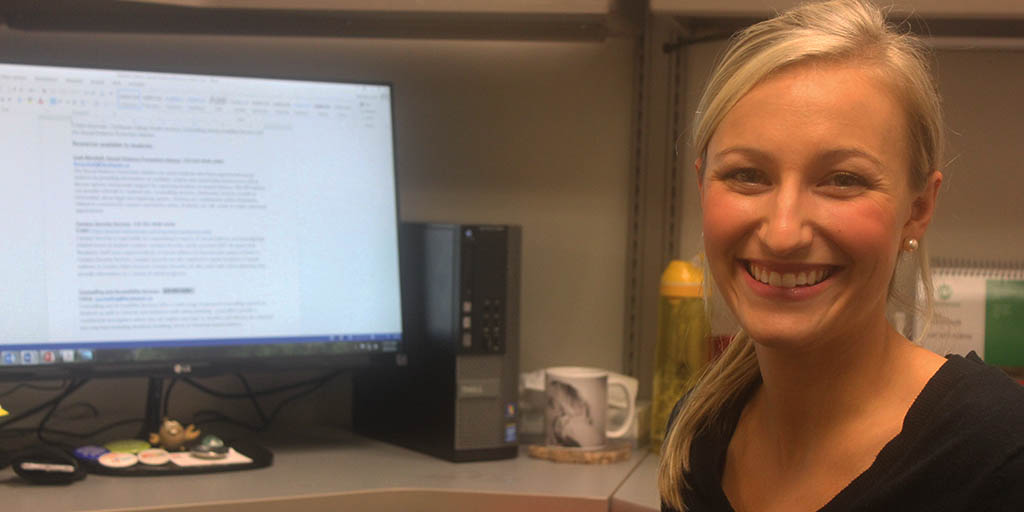Ontario government funds sexual assault awareness program for London organization
 CREDIT: KERRA SEAY
CREDIT: KERRA SEAYFanshawe's sexual violence prevention advisor Leah Marshall is pleased about the increase in funding to improve sexual assault awareness and says this is a step in the right direction.
The Center for Research and Education on Violence Against Women and Children has received $300,000 to improve sexual assault awareness and provide training for Ontario post-secondary campus workers. The funding is part of $1.7 million spent by the Ontario government to ensure that survivors of sexual assault are being recognized and supported.
The center is a collaborative program between Western, Fanshawe and the London Coordinating Committee to End Woman Abuse. They focus on creating awareness and prevention programs around sexual assault and abuse.
“We have to come together as a community to create change. It’s not going to take one person or one position, it’s going to take everyone to make that happen,” said Fanshawe’s sexual violence prevention advisor Leah Marshall.
Fanshawe is fortunate to have a wealth of sexual assault services available on campus, from counselling and accessibility services to medical services at the Fowler Kennedy Sport Medicine Centre. Marshall wants to ensure that survivors know their options and are connected to any services they require and that students and staff are made aware of the realities of sexual assault and the preventative role they can play.
“Part of our policy here on campus is that if someone discloses to anyone that is not a counsellor, that staff has an obligation to report it to Campus Security Services who then has an obligation to report it to London Police.”
Although the funding is specifically aimed towards post-secondary campus staff, students also play a large role in supporting survivors of sexual assault and abuse. Survivors are more likely to confide in a friend or peer; students need to be informed about the proper way to respond. Part of that comes from a general awareness of sexual assault and rape culture.
“We’re trying to shift the culture on campus from one of rape culture to a culture of consent. Just running one sexual awareness fair in September is not sufficient because sexual assault happens 365 days of the year. This messaging has to be coming out consistently throughout the year and has to be coming out in different ways,” Marshall said.
How can you help if someone confides in you that they’re a survivor of sexual assault or abuse? “You can start by believing the person and letting them know that they do have options available to them. It’s important for students to know what is available on campus so they can make the best decision for them moving forward,” Marshall said.
Once that support and belief has been established, it’s important to let them decide how they want to proceed. Ask them how you can support them and listen to what they have to say.
“Sexual assault isn’t about sex: it’s about power and control. Part of supporting survivors is putting power and control back into the hands of the survivor and allowing them to guide the healing process moving forward. It’s their story, and they’re going to be rewriting that story. There are options available.”














